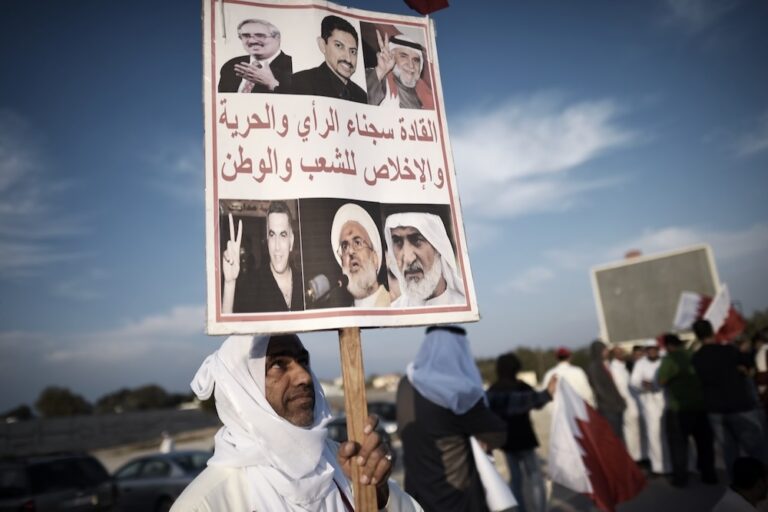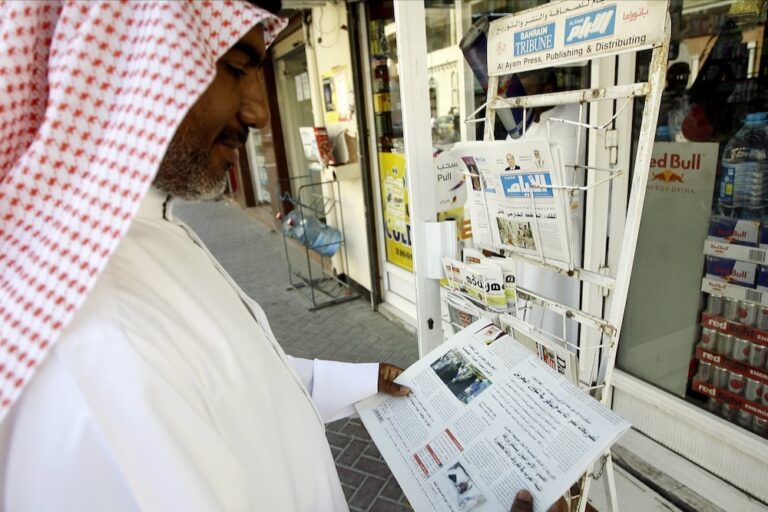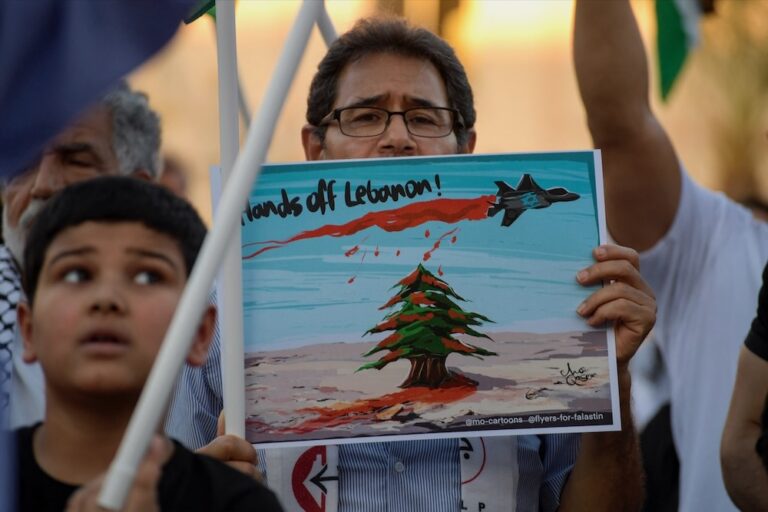(RSF/IFEX) – The following is an abridged version of a 3 July 2008 RSF press release: Press law amendments hailed but journalists still face jail and websites risk closure Reporters Without Borders has welcomed some amendments to the press law in Bahrain but voiced concern about some remaining failings that leave journalists and publications exposed […]
(RSF/IFEX) – The following is an abridged version of a 3 July 2008 RSF press release:
Press law amendments hailed but journalists still face jail and websites risk closure
Reporters Without Borders has welcomed some amendments to the press law in Bahrain but voiced concern about some remaining failings that leave journalists and publications exposed to risk.
Despite real improvements, Bahraini journalists still face prison sentences for what they write and officials keep the right to close websites, the worldwide press freedom organisation said in a letter to the country’s information minister, Jehad bin Hassan Bukamal.
(. . . )
Three journalists on the weekly al-Wefaq, press organ of the main opposition group of the same name, were summoned by state security services on 28 June and were not released until the following day. The editor Sayyed Taher, journalists Adel al-Ali and Mohammd Naaman are being charged with “inciting hatred of the government, “insulting the regime” and “publication of news fostering confessionnalism”. The representative for al-Wefaq, Khalil al-Marzooq, said the prosecutor’s office had not produced any evidence or even any article to the three men before charging them.
The journalists were apparently questioned about their links to the website Awal.net ( http://awaal.net/ ) that was closed on the order of the information ministry on 24 June 2008. Two other websites, Shams Albahrain ( http://www.ba7rainss.com/vb/ ) and Mamlakat Albahrain Forums ( http://www.bahrainforums.com/ ) were closed on the same date because of their “sectarian nature”. The information ministry relied on Article 19 of the decree-law No 47 of 2002, allowing any publication to be banned that “harmed the regime, the official state religion, morality or different confessions in a way likely to cause a breach of the peace”. At least 24 websites are currently being blocked in Bahrain as a result of decisions by officials.
The Manama government has also made known its wish to set up a commission responsible for monitoring sermons given in the kingdom’s mosques as well as press articles and online discussion forums to “report any incitement to confessionnalism”. On the blogosphere, an ethical code has been proposed by blogger Mahmood al-Yusif ( http://mahmood.tv/2008/07/02/proposed-bloggers-code-of-ethics-against-sectarianism/ ) to “appeal to the sense of honour of Internet-users” to counter hasty closures of websites. “The closure of online discussion platforms or any other website, whatever its content, only serves as a springboard to celebrity. It is only through debate in society that we will really succeed in changing people’s mentalities,” he said.
A Reporters Without Borders’ delegation went to Manama from 9 to 13 February 2008 to meet government representatives and opposition members, journalists, and leaders of civil society. Read the investigation report ( http://www.rsf.org/article.php3?id_article=26040 ).
To read the full text, see: http://www.rsf.org/article.php3?id_article=27741


